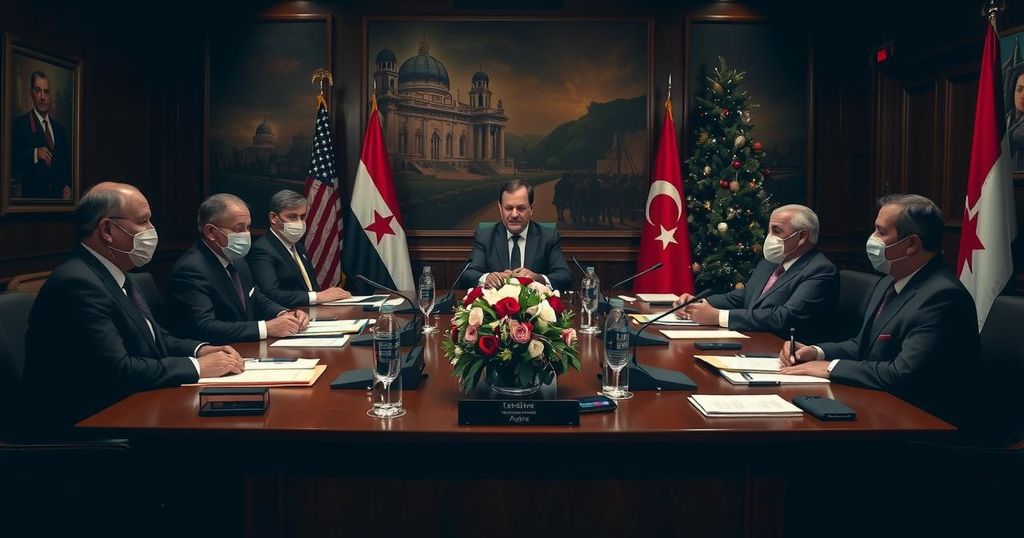Steve Witkoff, appointed as Middle East envoy by President-elect Trump, seeks to revive ceasefire talks in Gaza during meetings with leaders in Qatar and Israel. Concurrently, Iran mobilizes fighters to support Syrian President Bashar al-Assad amid escalating conflict, while Amnesty International issues a report accusing Israel of genocide against Palestinians in Gaza, reflecting the dire humanitarian situation post-October 7 attacks.
In an effort to establish peace in Gaza, President-elect Donald Trump’s appointed Middle East envoy, Steve Witkoff, has engaged with leaders in both Qatar and Israel. His meetings, conducted in late November, aim to revive negotiations surrounding a ceasefire and a potential hostage agreement, according to sources familiar with the discussions. Witkoff’s role as special envoy was designated on November 12, marking a significant step in diplomatic endeavors concerning the Israeli-Palestinian conflict.
In a separate context, the situation in Syria remains precarious as Iran actively seeks to bolster President Bashar al-Assad’s military standing. The region is seeing the mobilization of Hezbollah and Iraqi Shiite militias in response to mounting pressure from Islamist rebel forces capturing key territories like Aleppo. However, the effectiveness of these reinforcements is questionable due to Hezbollah’s previous vulnerabilities and the less sophisticated capabilities of the Iraqi militias.
Amnesty International has released a report accusing Israel of committing acts of genocide against Palestinian civilians in Gaza, heightening the already intense discourse regarding Israel’s military operation. Israel asserts that their actions are a necessary defense following the devastating Hamas attack on October 7, which resulted in significant civilian casualties and numerous hostages taken into Gaza.
The backdrop of this article encompasses critical geopolitical dynamics in the Middle East, particularly focusing on the escalating violence in Gaza due to the conflict involving Hamas and Israel, as well as the Syrian civil war. The appointment of Steve Witkoff as Middle East envoy is indicative of a new direction in U.S. foreign policy aimed at mediating long-standing issues in the region, highlighted by the urgency of establishing a ceasefire in Gaza amidst accusations of human rights violations. The intertwining crises involve international actors like Iran and militant groups such as Hezbollah, reflecting the complexities of regional alliances and the implications of military engagements. Moreover, organizations like Amnesty International play a crucial role in shaping the conversation around humanitarian impacts, insisting on accountability for actions perceived as genocidal against civilians, thereby influencing policy discussions in the international arena.
In summary, the urgent initiatives led by Steve Witkoff signal a pivotal moment in efforts to forge peace in Gaza and address the humanitarian crises emerging from ongoing conflicts. The complexities of the Syrian civil war and the accusations of genocide against Israel present formidable challenges that require comprehensive diplomatic engagement. The interwoven narratives of regional violence, humanitarian concerns, and the geopolitical landscape compel a concerted effort from global leaders to seek resolution.
Original Source: www.washingtonpost.com







